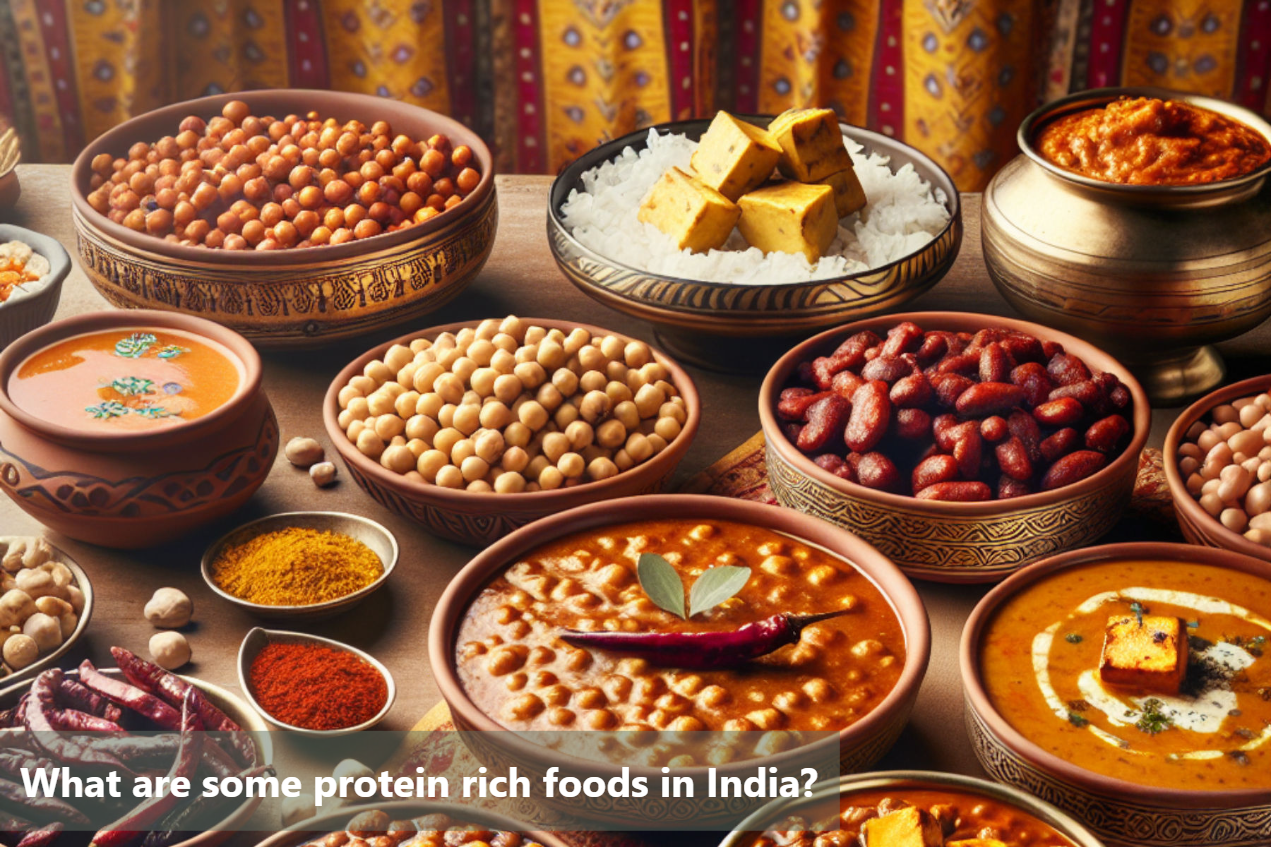What are some protein rich foods in India?

The diverse range of protein sources available in Indian food makes it a favorable choice for individuals looking to maintain a healthy diet.
Indian cuisine offers a plethora of options when it comes to high protein foods. From lentils and pulses to dairy products and meat, there are numerous choices that cater to varying dietary preferences. These protein-rich foods not only provide essential nutrients but also add delicious flavors to the meals, making them a popular choice among food enthusiasts.
Understanding the significance of protein in our diet, it is also important to consider budget-friendly options for protein-rich foods. In India, legumes, eggs, and nuts stand out as low-cost yet high-protein alternatives that offer a nutritious boost without straining the wallet. Incorporating these cost-effective protein sources into daily meals can ensure a well-rounded and nourishing diet.
Protein Rich Foods in India
For Vegetarians:
-
Chickpeas (Kabuli Chana):
-
Protein: Approximately 19 grams per 100 grams.
-
Fiber: Around 7 grams per 100 grams.
-
Other nutrients: Rich in folate, iron, magnesium, and manganese.
-
Can be used in various dishes such as curries, salads, and snacks like hummus and falafel.
-
-
Lentils (Dal):
-
Various types of lentils such as masoor dal, moong dal, and toor dal are rich in protein.
-
Protein: Varies by type but generally ranges from 7 to 9 grams per 100 grams.
-
Fiber: Approximately 8 grams per 100 grams.
-
Other nutrients: Contains folate, potassium, and various B vitamins.
-
Versatile and can be cooked in numerous ways, including soups, stews, curries, and salads.
-
-
Paneer (Indian Cottage Cheese):
-
Protein: Approximately 18 grams per 100 grams.
-
Calcium: Provides about 200 milligrams per 100 grams.
-
Other nutrients: Rich in phosphorus, vitamin B12, and selenium.
-
Used in dishes like paneer tikka, palak paneer, and paneer bhurji.
-
-
Soybeans:
-
Protein: Around 36 grams per 100 grams.
-
Fiber: Approximately 9 grams per 100 grams.
-
Other nutrients: Contains iron, calcium, vitamin C, and various phytonutrients.
-
Used to make soy milk, tofu, tempeh, and soy chunks (soya nuggets).
-
-
Milk and Dairy Products:
-
Protein: Varies by product but generally ranges from 3 to 6 grams per 100 grams.
-
Calcium: Provides about 100 milligrams per 100 grams.
-
Other nutrients: Rich in vitamin D, vitamin B12, and riboflavin.
-
Used in various Indian sweets, beverages, and savory dishes.
-
For Non-Vegetarians:
-
Chicken:
-
Protein: Approximately 31 grams per 100 grams (skinless, boneless breast).
-
Fat: Varies based on cut and cooking method.
-
Other nutrients: Contains iron, zinc, and B vitamins.
-
Cooked in various Indian dishes such as tandoori chicken, butter chicken, and chicken curry.
-
-
Fish:
-
Protein: Varies by type but generally ranges from 16 to 25 grams per 100 grams.
-
Omega-3 fatty acids: Rich source, particularly in fatty fish like salmon and mackerel.
-
Other nutrients: Contains vitamin D, selenium, and iodine.
-
Prepared as fish curry, grilled fish, or fish fry in Indian cuisine.
-
-
Eggs:
-
Protein: Approximately 13 grams per 100 grams (two large eggs).
-
Fat: Mostly found in the egg yolk.
-
Other nutrients: Rich in choline, vitamin B12, and various antioxidants.
-
Enjoyed as boiled eggs, omelets, egg curry, and egg bhurji.
-
-
Mutton (Goat Meat):
-
Protein: Around 25 grams per 100 grams.
-
Fat: Varies based on cut and cooking method.
-
Other nutrients: Contains iron, zinc, and vitamin B12.
-
Used in various Indian meat dishes like mutton curry, mutton biryani, and kebabs.
-
-
Pulses and Legumes:
-
Protein: Varies by type but generally ranges from 7 to 9 grams per 100 grams.
-
Fiber: Approximately 8 grams per 100 grams.
-
Other nutrients: Rich in folate, potassium, and magnesium.
-
Added to meat dishes to enhance flavor and nutritional value.
-
Discovering Protein Sources in Indian Cuisine
Including protein-rich foods in your diet is particularly vital as they aid in muscle growth and repair, support a healthy immune system, and help in maintaining a feeling of fullness, which can be beneficial for weight management. By consuming a combination of high protein foods such as lentils, dairy, and vegetables, individuals can meet their daily protein requirements without compromising on taste or variety.
It is recommended to explore the array of protein-rich foods that Indian cuisine has to offer to maintain a well-rounded and healthy diet. A balanced intake of these protein sources can contribute significantly to one's overall health and well-being. Keep experimenting with different recipes to enjoy the nutritional benefits while relishing the flavors of Indian cuisine.
FAQs
-
How can I incorporate more protein into my Indian diet?
Include lentils, legumes, dairy products, and nuts in your meals. Experiment with different recipes to add variety.
-
Are there vegetarian protein sources available in India?
Yes, India offers a variety of vegetarian protein sources such as pulses, dairy products, tofu, and nuts.
-
Can Indian cuisine provide adequate protein for a balanced diet?
Yes, traditional Indian cuisine offers a range of protein-rich options suitable for a balanced diet, including lentils, legumes, and dairy.
-
What are some easy-to-find protein-rich snacks in India?
Roasted chickpeas, nuts, yogurt with fruits, sprouts, boiled eggs, and cottage cheese (paneer) are convenient protein-rich snacks in India.
-
Are protein supplements necessary for a protein-rich diet in India?
Protein supplements are not always necessary if you consume a balanced diet rich in lentils, dairy, nuts, and other natural protein sources available in India.
